Don't wanna be here? Send us removal request.
Text
On Harry and losing a parent in adolescence
I was twelve when my father died. It was an event which changed my life in ways I have seen and, no doubt, some I have not. Perhaps I don’t need to.
This is perhaps an even more personal blog than usual, and it is important to say that I am not writing it as a form of therapy. These events have long since been gently woven into the tapestry of my life, in which I trust there is much colour even if there may still be the occasional ragged end hidden underneath. However, as we all take stock after the furore over Prince Harry’s book, and the interviews, I wanted to look at an aspect which I think has not, perhaps, been given sufficient attention in all the media coverage. Perhaps that should not, sadly, surprise us. That facet is the effect of catastrophic loss.
Losing a parent in adolescence is known to have major and complex repercussions. The death of a parents is, of course, traumatic at any age, with different ramifications at each, but when it occurs during those multi-faceted, stormy and vital adolescent years, there are specific challenges with, sadly, a lot less research to inform us than there is into the death of a parent in childhood.
What research there is highlights that the loss of a parent at this age increases our risk of various complications in both mental health and functioning in general, in both the short and long term. It is equally clear that school, peers, the family and wider environment all play a part in determining how well we recover from the loss, if recover is the right word. Bereavement is, I think, like losing a part of your body. You can climb Everest with a missing limb, but life is never the same. In adolescence we already have challenges of life adjustments and developing our sense of identity: when we lose a parent at this stage, we are trying to navigate two very difficult and different psychological paths at the same time.
We know both from general research and from often underestimated common sense that the funeral is a key moment in the journey of grief. It is the last loving thing we can do for someone and although desperately painful, it is important both in its recognition of the finality of the change of relationship we have with that person and also as an opportunity to receive support from others. This later aspect is one of many factors which made grieving in the pandemic even more difficult.
My experience and Harry’s of the respective funerals could not have been more different. Those of us watching at the time will remember the desperate poignancy of him walking (with others, but as the youngest) behind his mother’s coffin, and the indescribable ordeal for both boys of the funeral being held in the glare of the media amid an outpouring of grief by thousands. Those others, most of whom had never met her, were in reality often mourning their own losses triggered again, or even for the first time, by her death. They wept too perhaps what she represented to them, together with the unfairness of the apparently capricious unpredictability of death. By contrast, I was not allowed to my father’s funeral, lest I found it too upsetting. Kindly meant, and I suspect such ‘protection’ is less frequent now, but it was ultimately unhelpful to isolate me from everyone at that time. It was not until my twenties that a friend gave me space to talk about the complexity of my feelings, and to take flowers to place by a tree at a local park as a farewell. To a much lesser extent though, I can dimly sense, in the tiniest fraction, the additional dynamic of losing a parent who others feel as if they know. Cornwall in the 60s and 70s was a small world. For years after my father died, at anything where my name was given people would ask ‘Are you Dr. Harrison’s daughter by any chance?’, followed by an anecdote of some kind by people who knew him, but didn’t really know him, not in the way I did.
It is well-documented that friends and peers are often the most helpful for adolescents who are grieving, not least as the family can be too caught in their own grieving. My mother was faced with massive changes as we lost our tied accommodation, so she had to quickly find housing and also to return to full time nursing after a break of nearly twenty years. Not surprisingly, she was caught up with managing our lives practically, and perhaps her own upbringing in an orphanage had not equipped her well to deal with a daughter whose grief was both very inward and, for various reasons, highly complicated. The school did, I think, inform the staff and pupils before I arrived - my brother and I were both sent to school the same morning we were told our father had died, just slightly later than usual. I was not seen by any of the staff other than in lesson time, and never individually – again, pastoral support was more patchy then than I hope it is now. The imploded nature of my grieving was also a confusion to my friends, my best friend on one occasion calling me a ‘hard-nosed b****’ because I had not cried. I realised she could not see the maelstrom which was happening inside and I could not explain my lack of expressed emotion to her. We remained friends. I was too busy coping with the other losses - a house move, a grandmother who lived with us dying just after my father died, and my dog being put down because it was thought necessary due to our change in circumstances. I had no room either to explain or hold any judgements of others. Harry recounts that he barely cried after Diana died, which was hardly surprising given the shocking nature of her death and the public nature of subsequent events I mentioned earlier. I may be doing Eton a disservice, but wonder what help he was offered, both there and in the wider family. He may recount it in his book – I have not yet read it, though I will. Sometimes I like to read or watch things later where there is a media storm, to have mental space to form my own uncluttered opinions. You don’t need to have read it to see, in every interview, a man who is still bleeding from the most severe of wounds.
What the research does show is that some people who lost a parent in adolescence believe that although they were forced to grow up and assume responsibility too soon, it has left them, as a positive, more empathic to others. I hope that has been the case for me, and certainly Harry has shown genuine concern to improve awareness about mental health. As a Christian, I believe in a God of redemption, who can take the darkest of experiences and work something of them that can be beautiful. That is the work, after all, of the cross. My prayer for Harry, as indeed it has been for myself, is that there is still a beautiful stained glass window to be formed even from the brokenness.
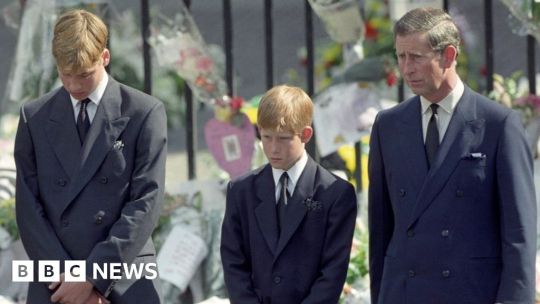
0 notes
Text
On Matt Hancock, the jungle and the lingering legacy of Covid

First of all, a plea from me. Take a deep breath, lay any immediate prejudices at that title aside, and take time to read what I am actually going to say.
You see, I think that in the media furore surrounding Matt Hancock’s entry into the occasionally brutal and sometimes fascinating reality show ‘I’m a celebrity, get me out of here’, some important elements have been missed. Let me explain.
For those of you who have never watched the show, a quick precis. A number of ‘celebrities’ (and both I and the show producers are using the term loosely) are taken into the Australian jungle, (actually an old castle in Wales during Covid restrictions) given only the basics, and have to do ‘trials’ with varying degrees of unpleasantness to earn food. Actually, as I type this, I am briefly reminded of the grim novel ‘Lord of the Flies’ and certainly watching the changing group dynamics is fascinating, though significantly more controlled than in Golding’s book. All this is fronted by the immensely likeable Ant and Dec who clearly find it all hilarious. That is probably enough information to give you the idea. The participants are, of course, well paid to endure the ensuing humiliation and the show makes money from people voting as to who does each ‘trial’.
This year, the ex-Health Secretary Matt Hancock has joined the show, in what the producers undoubtedly see as a coup (and money earner), but prompting media coverage (aka free publicity) and widespread criticism. This has come in several fronts – including that Parliament is still sitting, so he has had the Whip removed), and that as a public servant he is profiting from ‘fame’, arguably resulting from his affair breaking Covid rules. There is moral indignation in the mix, though perhaps we need to beware before we cast the first stone.. Already there is tension on his arrival, with whispering in corners, and Boy George (yes, he is there…) talking about having to text his mother in hospital because he was unable to visit. I suspect the public will vote Matt to do every trial, and it remains to be seen whether his campmates soften or harden their attitudes towards him.
Now - remember what I said about taking a deep breath – I am not here to defend his behaviour, either then or now, though I do think all politicians found themselves in an impossible situation with a terrifying virus which fed into so many of our fears, both conscious and unconscious. No doubt the enquiry will find that many mistakes were made, but some of these were perhaps inevitable as well as some which were, sadly, preventable. Many of us battle a mix of a deep distrust of those in power combined with a secret relief we will never be in those positions.
My point is quite different. Matt Hancock is simply one person. A flawed human being, as we all are. He did not cause the pandemic. The anger which is surrounding him at present is, I suspect, more complex than pure righteous indignation. For example, there is, I think, some envy – vast sums after all are involved at a time when most of us are struggling financially. There is also, underneath the condemnation, a certain frisson as a politician is forced to crawl through mud and face their fears. However, in the responses of the media, public, and fellow jungle contestants, I think there lurks something more serious which is there in all of us.
What is it? I think we all carry quite a high degree of unprocessed trauma from the whole period of the pandemic – which still leaves a legacy in the NHS backlog, children’s education and in the mental health of so many. There is also a residual exhaustion and the remaining sense of insecurity. What else could happen, as that did, so suddenly? In addition, there is much unprocessed grief where there were so many deaths, caused by Covid or not, where grieving was made more complex.
So yes, it will be interesting to see if attitudes to Matt Hancock soften or not. Regardless of that, we would be wise to take a step back, and rather than focus on this one man all that is still hidden within, raw and painful, to instead give it some of the space and expression it deserves and that we most certainly still need.
0 notes
Text
On being acknowledged
Until recently, although an avid reader, I have never read the acknowledgements which are to be found either in the front or back of a book. They have always reminded me a bit of Oscar speeches, where people appear to list anyone who might have contributed to their win, names which mean little to most of those listening or watching.
However, as is so often the case, I am having to rethink my former indifference. As I agonised over writing my own book acknowledgements, I realise that these other unfortunate authors, whose carefully constructed sentences I had so summarily dismissed, will have deliberated equally hard about who to include, as well as who to name and those for whom a more generic reference would suffice. It is now abundantly clear that giving birth to a book is a complex process in which many people have a part to play. Less painful in my experience than actual birth, but certainly not without its challenges.
I do wonder how many people named in acknowledgements actually find out and see their names there. Or do friends of authors scour that very section just to see? It is such a novel (excuse the pun) world for me that it is a question I have never considered. I newly understand the need of the writer to express gratitude to all those companions who have seen through to the delivery.
However, to be acknowledged in some way is surely a basic human need. Not so much for what we do, or achieve – this is a path fraught with danger as we become over-identified with what we do, and suffer greatly when we lose that, for whatever reason. But to be seen as who we are, as one-of-a-kind individuals: that truly matters.
The Bible recognises this need with its many references to God remembering us and knowing our names. Jeremiah, a God-follower who led a difficult life, heard a gentle whisper of reassurance from God “Before I formed you in the womb I knew you”, and we read elsewhere in Isaiah “Fear not, for I have redeemed you; I have called you by name, you are mine.”
So whether you have ever been named and acknowledged in a book or not, know that where it counts your name is known and you are seen through loving eyes as the unique person that you are.
0 notes
Text
On not trying to revisit
This weekend we returned to Fowlmere, a RSPB reserve which we have visited before. It is the place where I experienced one of my favourite ever wildlife moments, of which I have a fair few.
We had just sat in a hide (for the uninitiated, this is a “shed” with windows from which you can watch wildlife whilst trying to not disturb them and so hopefully see more), having had a good day watching, among other things, marsh harriers wheeling above us in a stunning aerobatic display. We would have been happy to see nothing else. Yet within a couple of minutes a kingfisher landed on a branch just in front of us. I had never seen one so close, and it was a stunning sight, with a bird obliging enough to allow us to capture the moment on camera, though the image can only serve to prompt the memory rather than recapture how extraordinary the moment was.
So yesterday, inevitably, we returned to the hide, and as unrealistic as it might have been, I somehow hoped as we sat there that it might happen again. Alas, it was not to be. After the extreme heat of this summer the water level was low and no self-respecting kingfisher was going to perch to stare at barren mud. The stick stayed empty.
As I sat, I reflected how so often in life there are moments that we simply cannot recapture. We can try with photographs or even video, we can rehearse them verbally, or we can (as I did) try to recreate the moment. Yet ultimately such attempts are futile, and perhaps they should be. The past is precious and to be valued, and it is the present in which we are to live. It is the only moment we are guaranteed yet we are so often existing in the past or future.
So I realised, watching that empty stick, that I needed to rethink the day. Yes, there was no vibrant flash of blue, fleeting or otherwise. Yet there were other moments to experience, if I could accept the challenge to stay in them. Dragon and damselflies flitted around and one settled long enough to allow us a good look. A huge flock of lapwings – some young and practising early flight - wheeled around us, landing just to take off again. And just as we headed out to go home, a first for me – a flycatcher I would not have noticed had it been pointed out to me, dipping between the trees.
So no, I could not recapture that moment with the kingfisher. Yet other moments were there to be experienced. With increasing awareness of mindfulness, T-shirts declaring “Carpe Diem” (seize the day) and encouragements from various sources to remember the need to be grateful this is not an unfamiliar thought, though it remains a challenge, for me at least. Yet the idea is much older. The prophet Jeremiah, whose life was fraught in so many ways, has had these words attributed to him:
The steadfast love of the Lord never ceases;
his mercies never come to an end; they are new every morning; great is your faithfulness. (Lamentations 3:22-23)
Today is what we have. Let’s look, even amid the challenges we might face, for any simple yet special moments which might otherwise pass us by.
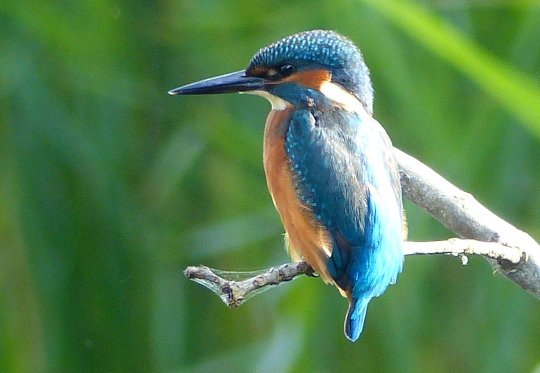
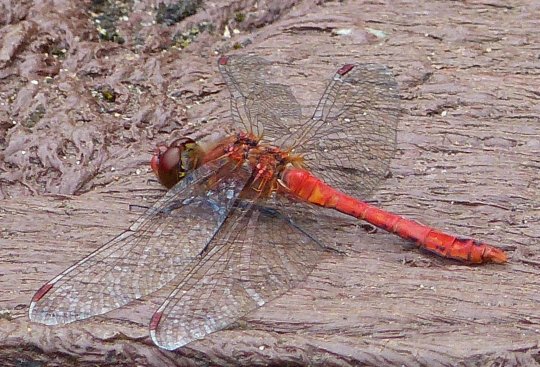
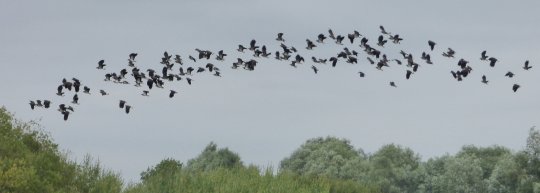
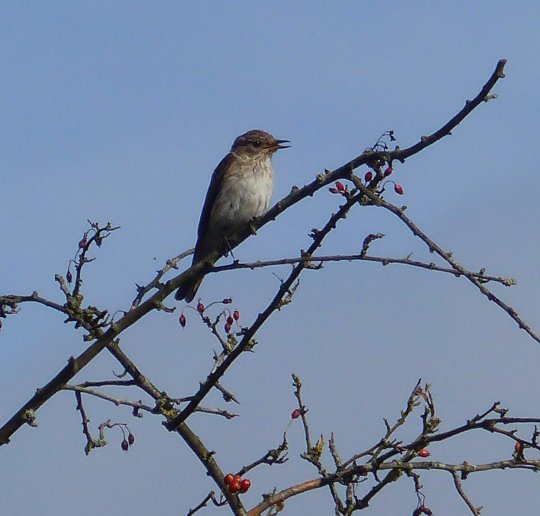
0 notes
Text
Lent thoughts
This Lent I’m putting things in, not taking them out. One of them is to write most days, briefly, from the perspective of someone in the gospel stories. Here is day one
Woman at Bethlehem Matthew 2:21
It is curious how some moments just stay in your mind, returning like a familiar fragrance you catch in a crowd. For me it was the night that couple left. I can see it even now.
They had left from us by then, and maybe you would expect that the images that lingered for me would be the birth of the baby. And yes, in some ways it was. The fear yet calm in her eyes, her husband helplessly looking on while the women helped, and as always the unfettered joy and relief of that first cry. I do remember that still, and smile.
But that night, some time later, that was different. It was a starlit night, and woken for no reason that I could tell I crept outside to breathe deeply without disturbing anyone. As I looked up, a cloud passed across the sky and for a moment I shivered, as though I sensed the approach of a fresh darkness. And then I saw them. Walking slowly through the town, wife huddling the child against the cold, head bowed towards him as if in adoration and arms encircling him as if to protect him from the world. Her husband glanced around him as though in fear. I was puzzled. What on earth had caused them to leave like this, in the middle of the night, disappearing like fugitives into the darkness?
And then my child stirred, and I went back inside.
I had no idea the disaster that was about to overtake our lives.
0 notes
Text
On bigger birds
Recently I blogged about the sad dearth of small birds in my garden. Today, as always, I went out early armed with a plethora of food to tempt them: suet treats, sunflower hearts and even dried mealworms, the aroma of which is grim but which, from the rapidity with which they vanish, are much loved by our avian visitors.
A few moments later, stood at the sink, I scanned the garden in hope of spying one of the small birds I was hoping to attract (and which seem to be in every increasing numbers is everyone else’s garden, unless friends only choose to tell me out of a distorted sense of humour).
Nothing. Not a thing, even our regular robin. I sighed.
But birds…well yes. Three feral pigeons pecked furiously around the base of the bird feeder – clearly news of the occasional sparrow hawk has not reached them. A family of four starlings dipped in and out of the bird table (designed to be too small for them, they hadn’t read that part of the description, clearly), with the miniscule amount of February light catching their vibrant and often under-appreciated plumage. Two collared doves were cooing quietly whilst awaiting their turn, because the parakeets had just flown in, a splash of bright green, announcing their arrival with characteristic noise to hang precariously but acrobatically from the feeder. A blackbird was skulking timorously amid some shrubbery.
And so I watched, and as I did so was reminded how easy it is to concentrate on what we don’t have, rather than what we do. In some circumstances, of course, there is so little good that this is nigh on impossible. There are times for grieving, or other dark times when we need companions who will hold on to hope for us without false gaiety. But for most of us, much of the time, there is something. The days are grey, but we have eyes to see them.
I am not always very good at that kind of gratitude, and the birds can teach me here. Most birds drink by gravity, and so they will sip and then turn their beaks up, as if in a gesture of gratitude to the God who made them. The exception, as it happens, are doves and pigeons, who drink by suction so appear to lack the same thankfulness, but there again I have always had a certain amount of empathy for the often maligned pigeon in its very ordinayness so I can’t find it in my heart to chastise them.
So, as this long grey winter slowly transforms into Spring, I will try to see what is there, rather than what is not. Perhaps some surprises may even be there waiting….

0 notes
Text
On birds
Just over a year ago now we moved into our current house and, to be ruthlessly honest, the garden has been a bit of a disappointment. To be fair, the house was chosen for its location and affordability, but nonetheless the garden specifically has caused me a modicum of frustration.
On arrival, despite the previous owner declaring themselves a very keen gardener, we took 125 bags of garden waste to the tip (or whatever it is currently called) just to discover the garden under a thick blanket of bindweed, couch grass and ground elder. That particular battle continues, as does the rebuilding and replanting. In addition, like many gardens in this area, it is on a slope, so weeding induces a slight feeling of being on a ship at sea – or a childish desire to roll down the hill which whilst fun might well end in disaster.
The biggest regret though has been the birds. Those of you who know me know that I love birds. Having a garden again after a flat I imagined the joy of watching sparrows, blue tits and a plethora of small birds feeding and flitting. We put up every kind of feeder, with every kind of sustenance to tempt the most discerning winged visitor. And waited. And waited.
Now it is not that our garden is without birds. Pigeons, parakeets and magpies (I couldn’t find another p) adore us. They regularly find out how to feed from the gadgets which are specifically designed to defeat them. They astound us with their acrobatic ability – even the magpies – contorting in positions no ornithologist would deem possible. This despite a sparrow hawk doing his (or her) own feeding – on them. There are enough of them to spare, and he needs nutrition too, but I wish he would be more consistent about removing the carcasses. I’m a vegetarian after all. We have to rely on the foxes for clearing up. Hopefully the scattered feathers might eventually get recycled for nests. I suppose in contrast with its name, at least it can’t eat the sparrows. There aren’t any.
Nor is the area without small birds. Just up the road a group of sparrows are regularly seen on a front garden feeder. Friends nearby have robins nesting in their garden and others see a wide variety of birds at their feeding stations. I’m working, successfully, on feeling no envy. I’m pleased for them, honest.
Last year I thought we had cracked it. Small birds started to appear – goldfinches for their favourite niger seed, robins and even a blackcap one joyous day. A solitary sparrow chirped cheerfully on our roof for a whole week. Then, just as swiftly, they vanished. The loss was palpable.
Today, after a brief, frenzied bit of digging induced by panic at the imminent arrival of some discounted plants, I stopped for a moment on a bench at the top of the garden, a windy yet peaceful spot. Now I would love to tell you that this rare minute of inactivity meant that I realised that, far from the dearth of birds I was lamenting, there are scores. Alas, no. But there were three. A pair of robins enjoyed the earth I had been digging, and one discovered the new bird table (we have tried everything else, after all). Then, to my surprise, a blackcap flew into our very overgrown mallow enjoying the cover and, I assume, feasting on some sheltering insects. The bush was going to go, but I will have to think more carefully now and perhaps grant a reprieve.
Maybe the garden will never be as well frequented by our small friends as those around us, for whatever mysterious reason. Life has worse disappointments. But that is not what was on my mind today. The point is this, and it is one that is often made but worth repeating. I would not even have seen those visitors if I had not stopped, even if briefly. No digging, no chores, not even looking at the mobile phone. Busyness, whilst sometimes necessary, can, if incessant, rob us of so much delight. I suspect too, that God sometimes waits for us to stop for a moment to catch what He is saying. As Barbara Brown Taylor says with her customary wisdom, what if Moses had decided he was too busy to step aside to look at the burning bush?
I will try to simply stop, however briefly, more often. Who knows what I might see – or hear. Surprises from God’s creation, or a gentle whisper from Him which might otherwise be missed. Inactivity can also be an adventure.
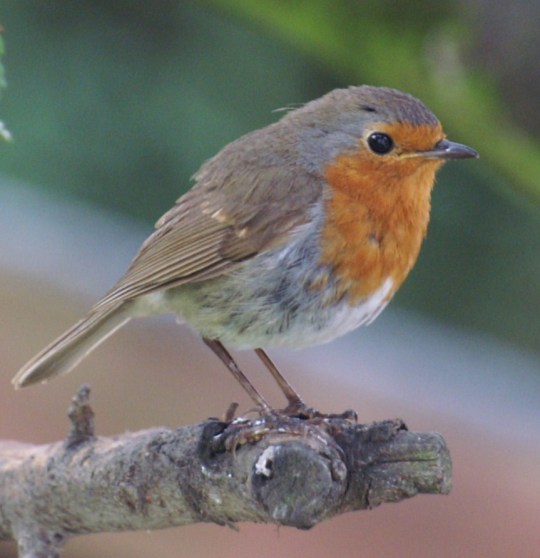
0 notes
Text
On “Broken”
On “Broken”
Television, one of the most powerful media of our age, is fascinating in the uses to which we put it. For many of us, it provides the capacity to unwind after an arduous day. The genres which facilitate this vary: some enjoying a distracting fiction, others the (often emotionally engaging) equal drama of a sporting engagement, some to learn a new skill or enhance an existing one, such as cookery or gardening. Travel and home shows suggest we like to see how others live or what we might aspire to achieve (or envy?). Learning features heavily for some, whether science or current events. Then there is horror- a genre for which I don't personally understand the appeal but many do watch. No doubt we could debate that at length.
Recently I've been reflecting why I watch what I do. For example, I enjoy cookery programmes but am certainly no chef. There are some things I never watch - many years ago when working as a counsellor I had a Jewish client who had been in a concentration camp. Week by week I listened to her haltingly recounting horrors which for her remained only too real. To this day I have never been able to watch Shindler's List.
So I can't say what drew me to the recent drama "Broken". Sean Bean is an excellent actor, and Jimmy McGovern an immensely talented, though gritty, writer. At the end of the day I suspect it doesn't matter...I may well have stumbled on it by accident.
The personal impact of it though is beyond dispute. It was one of the most profoundly moving dramas I have watched in a very long time. I won't say too much about the plot, lest any of the few who read my ramblings still want to watch it! I can say though that it concerns a Catholic priest (played by Sean Bean) and that each of the six weeks has a separate storyline which also interweave throughout.
Ministers on television are normally either inept, extremist, creepy or corrupt. They rarely reflect ministers I know: who are ordinary, hard-working people of integrity who love God and those in their churches and do a demanding job to the best of their abilities. The task of ministry involves an extraordinary combination of roles: a typical day often including anything from visiting dying or bereaved people, administration, dealing with staff (whether paid or voluntary), preparing services and sermons and a myriad of other tasks. Ministers, being very human, will be better at some than others but can sometimes be unrealistically expected to be able to do everything with consummate skill whilst displaying a (perhaps impossible?) level of personal holiness.
What was particularly moving about "Broken" was the way in which Father Michael was portrayed. He had his own vulnerability, from a painful past, but cared genuinely for those he served combined with a robust sense of social justice. Whilst described as “bleak” in one review, it was in many ways suffused with hope: in the compassionate humanity of one man seeking to be faithful to God and others amid the complexity of issues in our troubled world. It also spoke profoundly of both the restorative power of forgiveness, expressed in communion, and the power of words to encourage the weary and wounded.
I wept in the final episode: and I am sure I am not alone. Inspiring stuff.
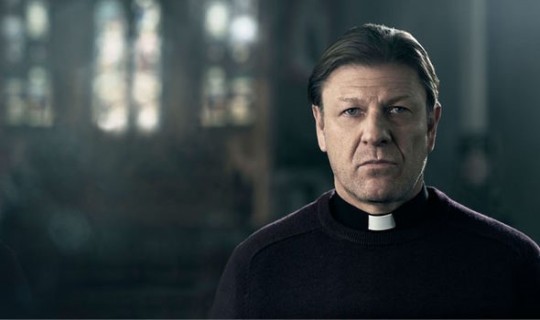
0 notes
Text
On wounds
Last weekend we went to Sheffield Park with friends. As one stood admiring one of the stunning trees that quietly populate that oasis, he said simply “Trees wear their wounds well”. As I looked, I reflected that they certainly wore them visibly – beauty really is in the eye of the beholder.
In the wake of the horrifying incident in Westminster yesterday – echoed across our world on a daily basis in places which, in their geographical or cultural distance, we perhaps find easier to ignore, or too overwhelming to contemplate – one of the descriptions of the victims was that they had suffered “life-altering injuries”. For some, those will be physical ones with implications for their future in a myriad of everyday and constraining ways. For all of those caught up in the attack, there will be less obvious injuries: the mental flashbacks which come unbidden and bring fear in their wake, the hypervigilance, the inability to take safety for granted ever again. They need our prayers and, where we know someone so affected, our ongoing care. Recovery will not be quick and as the news fades from our screens, ousted by something else, their journey will have only just started.
The tragic fact is that many – arguably all – of us carry wounds, some of which are more visible than others. As we approach Mothering Sunday, some will find wounds which are raw bringing renewed pain, and others bear scars which threaten to open again. The memories will be many: mothers who have been lost to death or absent in a plethora of ways, mothers who were abusive or collusive in abuse, mothers we longed to be but were not able, mothers who have lost children or where the relationship is difficult or damaged. These are just one aspect of the many ways in life can leave us wounded, whether from sudden and unpredictable attack or ongoing damage inflicted in infinite ways.
Perhaps - and I say this tentatively and with a profound sense of how difficult it is – at least sometimes our wounds, over a long, long time, can provide something lovely too. The beauty of setting aside our own pain to listen attentively to another, genuinely understanding something of their journey. The acknowledgement that one of the few things that we all share as people, whatever culture we may be, is that we are fragile and vulnerable. And, for people of faith, the remembrance that we have a God who is not distant or remote but wounded too, and so companioning us every limping step we take.
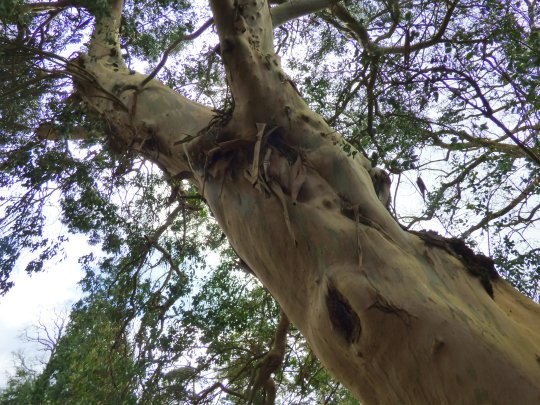
0 notes
Text
On the Shadow Doctor
I don’t usually blog my book reviews, but wanted to make a exception for this one, the latest Adrian Plass book, called the Shadow Doctor.. So here goes....
Occasionally I get asked what I read if spiritually I feel in need of a boost. The answer usually surprises people – I say that I either read The Lion the Witch or the Wardrobe, or one of Adrian Plass’ books. You will, therefore, correctly suspect some bias on my part as I review this much more recent book!
Adrian Plass has a rare capacity to tell stories with both humour and poignancy, a result of his ability to carefully scrutinise the peculiarities of human nature (and its expression in the church) but to do so in a way which punctures our self-important posturing or silliness, but somehow without ever being demeaning or undermining.
This story tracks the story of Jack, who has recently lost his grandmother, and his relationship with a rather enigmatic figure – the Shadow Doctor of the title - whose details were in his grandmother’s last letter. At the beginning of the book, Jack is worn out with shoring up his own faith by helping others and “was turning into a husk of himself….a false identity was still better than no identity at all but it was becoming harder and harder to maintain”. The shadow doctor invites him to stay, and indeed to help him in his work, and the book describes their interactions with some of the people they encounter, and also their developing friendship and the challenge each is to the other. The book ends in a way which would allow for a sequel. Personally, I very much hope so.
The book is full of challenging statements from the lips of either or the two men, or those they meet, and some people may find them difficult. For example, if you take in isolation the declaration that “prayer does not work”, or the shadow doctor’s assertion that he is sick of hearing that answers to prayer are Yes, No or Wait, some might feel the need immediately to rush to the defence (of God? Or our own need for certainty?). But rein in that desire and read on, and he has the most refreshing things to say. Similarly with the comment that Christianity does not work. It is important to read the whole conversation (indeed the whole book) with an open mind. There are some simply wonderful phrases in it that encapsulate so much: his use of words are a delight.
It is clear from the dedication that this was a difficult book to write. I don’t know all the reasons, but I am not surprised. A raw but necessary honesty bleeds from many of the pages. Equally though (and this is why I return to his books so often), it brings us back to Jesus. Following him is never predictable, and our attempts to tie up anything neatly (to keep us feeling safe or stave off our fear of the world’s or our own darkness) serve us badly. Sometimes it is only as we cast off our assumptions and well-worn responses to life and faith, like old clothes that might be comfortable in their familiarity but no longer fit too well, that the fresh wind of the Spirit can move through our weary lives and show us Jesus again.
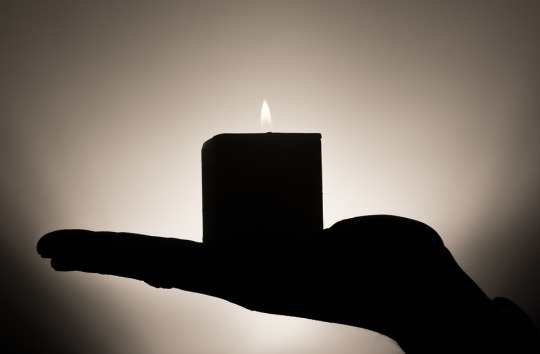
0 notes
Text
On befriending the darkness: a reflection on Psalm 88
I’ve always been fascinated by the Psalms. It may date back to being told that they are full of “rich” language, which I took as a euphemism for swearing and so was intrigued in their inclusion! I suspect it was untruthful, so I await correction in the very unlikely event of anyone, never mind a Hebrew scholar, reading this! Visible even though in the confines of English, their raw, almost visceral emotion is obvious and, for some of us at least, comforting.
One thing always mystified me though. Even allowing for the fact these are, after all, in the Hebrew worship book (how wonderfully real, powerful and vivid the worship must have been, spanning praise and despair, faith and lament), the psalmists seemed to be able to express their most difficult of emotions, raging at God, pouring out their hurt, riling at the injustice they have suffered, yet each time turing back to praise, apparently as effortlessly as a skilled ballerina pirouetting. How did this transformation take place? It is so easy to feel trapped in pain and anguish and be unsure how to transition to thankful worship, which only adds to a sense of inadequacy.
Psalm 88 is the exception. Written at the time of the division of the kingdom under Rehoboam by a man called Heman, it emerges from his personal pain as his wise advice was rejected, and a sense of hopelessness at the plight of the nation, both of which seem to have triggered a personal despair. The psalmist is wrapped in suffering, feeling completely alone in the universe, and rather than transitioning to praise the last words are unbearably poignant: “darkness is my closest friend”.
This psalm has been a place of refuge for many in times of pain and depression, when life tastes like dust and daylight seems never to come. It has been my great privilege (in a previous vocation) to sit with many people who know depression (a phrase I prefer to “having” it). For some, it was like an underground stream which had always been there, but which in some seasons, as the storms came, rose up and overwhelmed. For others it came unexpectedly, like walking into a pit set as a trap and invisible from the path. Either way, the darkness and isolation of the psalm are all too familiar, a frightening cocktail sapping life and hope. For some there was a visible greyness, a physical slowing like a pernicious weed wrapping its tentacles around the usual signs of life and vitality. For others, it was no less debilitating but hidden beneath a façade which fooled everyone, only adding of course to the sense of separation. If someone like that ever lets you see beneath the surface, be aware it is the most sacred (and delicate) trust that has been extended to you.
The psalmist though says darkness is a friend. I’ve always read this as an expression of despair, and I am sure that is there. But might there be more? We can speak of dark emotions, but, as Miriam Greenspan says in her book “Healing through dark emotions”, perhaps this is a misnomer. In our discomfort with grief, fear, despair and rage, the Western world have attempted to shut them away like an unmanageable child shut in a dark bedroom, implying we should feel shame if we cannot escape them, or at least keep the expression of them as brief as possible. There are terrible risks in this repression: both because individually the child of our suppressed emotions will grow and break out in ways we do not welcome, and because corporately we will somehow increasingly distance ourselves from the heartbreak of the world, with potentially devastating results. This is not an option for those of us who seek to follow Christ.
Perhaps this is not the way. Perhaps if (albeit perhaps because we have no choice) if we wrestle in the dark we may be left with a limp, but also carry away a blessing. But we do this best with a friend other than the darkness. Like the psalmist, it is easy to feel they have found more interesting companions or that we have used up their ration of patience and care. The real ones though will stick it out, sit with us unafraid of the night because they can hold on to the hope that there is treasure in the darkness, and that it will, however long, in time give birth to a gentle dawn.
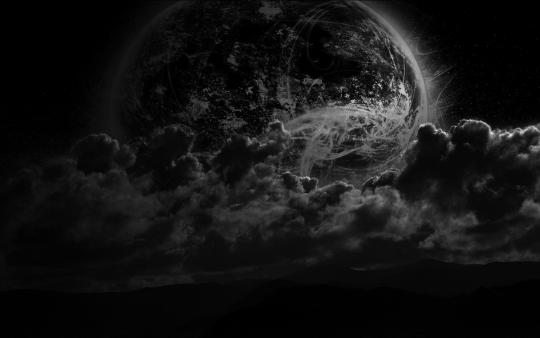
0 notes
Text
On Sherlock
This New Year saw the much-anticipated return (or conclusion?) of the BBC series Sherlock. A twisting plot, certainly requiring some imaginative acrobatics, with a dénouement which I, for one, found profoundly moving. Don’t read any further if you have not watched it yet….
Sherlock, it transpires, has a sister in addition to his brother. A dangerous psychopath, at the conclusion we see her as she is underneath: a lost and lonely girl who in childhood longed for a play companion and who communicates her isolation in the metaphor of a child high in the sky in a plane where every adult is asleep and which she cannot land.
Towards the end Sherlock kneels beside her and says arguably the most effective words we can ever utter to someone in distress: “I’m here”. His sister fears it is too late - “I’m lost in the sky and no-one can hear me” but, entering her private world, he insists “no…I’m on the ground…I can bring you home. Open your eyes. I’m here. You’re not lost anymore “ Then he simply holds her, saying to this woman who has caused great suffering and brought him personal havoc and pain “you just went the wrong way last time, that’s all”.
His friend Watson is rescued, and his sister is incarcerated again. Her parents want to see her but are told ”There’s no point…she won’t communicate with anyone in any way..she has passed beyond our view. There are no words that can reach her now” In the final section, we see Sherlock arriving (the implication of the shots is several times) to play the violin to her. At first she only looks, imprisoned in her seclusion, then in time she picks up a violin and they play phrase by phrase and then together. Finally Sherlock smiles.
There is so much that could be observed here. The appalling damage that can come in childhood in a myriad of ways which yes, we can work hard at overcoming in more constructive ways, but which remain foundational. The complexity yet abiding influence of sibling relationships. The agonising desperation for connection, to not be (or feel) alone in the world, and the terror of being lost. The deep-seated desire for “home”, for safety, and the need to be held, literally or figuratively. The inadequacy of words (and yes, I realise there is an irony in writing about it). The necessity of reaching people in creative ways which find them where they actually are.
This desire for relationship and connection is, I believe, ultimately only met in friendship with God, but for many of us we need to be “found” first (and not only once) by another human being. In times of isolation, of whatever kind, we need someone who will sit beside us and say, with or without words, “I’m here”. In friendship we pick up the figurative violin and play the tune that will resonate with the melody that the other person’s life is playing, catching the cadences of joy and sorrow. For those of us who know Jesus, the melody he plays always catches and brings depth to our own. And, no matter what mess we may have made so far, he kneels beside us, always ready to say “You just went the wrong way…I can bring you home”.
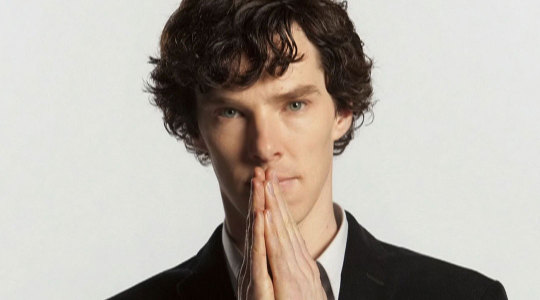
1 note
·
View note
Text
On Sherlock
This New Year saw the much-anticipated return (or conclusion?) of the BBC series Sherlock. A twisting plot, certainly requiring some imaginative acrobatics, with a dénouement which I, for one, found profoundly moving. Don’t read any further if you have not watched it yet….
Sherlock, it transpires, has a sister in addition to his brother. A dangerous psychopath, at the conclusion we see her as she is underneath: a lost and lonely girl who in childhood longed for a play companion and who communicates her isolation in the metaphor of a child high in the sky in a plane where every adult is asleep and which she cannot land.
Towards the end Sherlock kneels beside her and says arguably the most effective words we can ever utter to someone in distress: “I’m here”. His sister fears it is too late - “I’m lost in the sky and no-one can hear me” but, entering her private world, he insists “no…I’m on the ground…I can bring you home. Open your eyes. I’m here. You’re not lost anymore “ Then he simply holds her, saying to this woman who has caused great suffering and brought him personal havoc and pain “you just went the wrong way last time, that’s all”.
His friend Watson is rescued, and his sister is incarcerated again. Her parents want to see her but are told ”There’s no point…she won’t communicate with anyone in any way..she has passed beyond our view. There are no words that can reach her now” In the final section, we see Sherlock arriving (the implication of the shots is several times) to play the violin to her. At first she only looks, imprisoned in her seclusion, then in time she picks up a violin and they play phrase by phrase and then together. Finally Sherlock smiles.
There is so much that could be observed here. The appalling damage that can come in childhood in a myriad of ways which yes, we can work hard at overcoming in more constructive ways, but which remain foundational. The complexity yet abiding influence of sibling relationships. The agonising desperation for connection, to not be (or feel) alone in the world, and the terror of being lost. The deep-seated desire for “home”, for safety, and the need to be held, literally or figuratively. The inadequacy of words (and yes, I realise there is an irony in writing about it). The necessity of reaching people in creative ways which find them where they actually are.
This desire for relationship and connection is, I believe, ultimately only met in friendship with God, but for many of us we need to be “found” first (and not only once) by another human being. In times of isolation, of whatever kind, we need someone who will sit beside us and say, with or without words, “I’m here”. In friendship we pick up the figurative violin and play the tune that will resonate with the melody that the other person’s life is playing, catching the cadences of joy and sorrow. For those of us who know Jesus, the melody he plays always catches and brings depth to our own. And, no matter what mess we may have made so far, he kneels beside us, always ready to say “You just went the wrong way…I can bring you home”.

1 note
·
View note
Text
On dwarves and our darker side
Last night I again watched the final part of the hobbit trilogy with two friends. As it has been out several years now, I don’t think I need fear spoilers…
In this final part, Thorin, the dwarf king, goes badly astray. Seduced by a love of gold, and caught perhaps by hinted-at traits from his ancestry, he loses all reason, deserting both his friends and followers and his own integrity. They lovingly confront him, but to no avail. His friends are heartbroken. His inner (we suspect self-directed) violence threatens to erupt with potentially disastrous effects which only the intervention of his friends averts.
And then, just as it seems his inner conflict will overwhelm him completely, he comes his senses. He hears inside himself his own voice, and the warnings of his companions. His equilibrium restored, he returns to his quest, although ultimately it costs him his life. In death however, he is able to reconcile with Bilbo, the particular recipient of his rage.
As I watched, I was moved again by the resilience of true friendship. Thorin’s dark and ugly side is revealed in all its foul reality. His friends are not afraid to challenge him, yet having seen this dark side to his nature so fully and desperately exposed, they are loyal to the last. When Bilbo returns home to those who know nothing of it all, he is questioned who this Thorin is to whom he pledged allegiance. For a second we see all the memories (and perhaps the pain) fleetingly register again. Then he responds simply “he was my friend”.
We all of us carry a hidden side which we fear being laid bare. For some it may be deep pain, wounds which we fear will somehow suppurate (rather than heal) if they see the light. We feel a terror at the internal mutilation we suspect we are hardly disguising. For all of us, however we may deny it, there are parts of ourselves we despise: the capacity for inappropriate anger, egotistical posturing, voracious greed…the possibilities are endless. As people of faith we (hopefully) seek to allow God’s healing and forgiveness to transform us…but perhaps carry anxiety that in the right (or wrong) circumstances the monster will reawaken.
Friendship has many gifts. One of the greatest though, it seems to me, is to see us not only at our most vulnerable (vital though that is) but also at our most unworthy. To see each other at our most undeserving, dishonourable moments and yet to remain loyal – confronting lovingly, yes but holding hope for change – there lies a depth of friendship which is infinitely precious and holds within it the prospect of real transformation. To hold a mirror gently to one another, yet not to desert each other: this is friendship indeed.
Ultimately human friendships, whilst infinitely precious, are limited. These qualities though, surely, are what the Christmas and Easter stories ultimately represent. God – the ultimate Friend – holding a mirror to all our desperate shame, confronting it with arms outstretched in loving surrender to the ultimate consequence of our corporate and individual darkness. Yet utterly loyal, and bearing the cost Himself, He offers us the real possibility of returning to the selves we were created to be, and to the quest life (and He) calls us to.
Good news indeed.

0 notes
Text
On rescuing a damselfly
Last weekend we went with some friends to a garden in Kent. There were some stunning flowers: vibrant with summer hues that caught our gaze: cotinus flaming in the summers sun; exquisite dual coloured roses, pristine white flowers. So much to consume our attention.
Despite these beautiful distractions, my husband’s awareness was caught by something else. Almost out of sight, in a cobweb under a bridge, a damselfly was caught. Attracted no doubt by the flies, and anticipating a free meal, it had not seen the danger and had become entangled. There seemed no escape for this delicate creature, and the more it struggled, the more hopeless its plight as the entrapment intensified.
Compassionate as always, my husband was not going to leave it to its fate. Gently, he took a pen and quietly but persistently removed each of the filaments of the cobweb which were holding the damselfly trapped. At first it looked as though this might distress the creature even more, and it squirmed, uncomprehending, at the activity around it: we held our breath, fearing its demise. But no - as he gradually removed each thread, suddenly with a rush of wing beats the damselfly was free, landing on a nearby leaf: finding at last safe sanctuary.
“How like God!” a friend with us remarked, and it seemed to me that was very true. We ae caught in so much: our persistent living not as God’s best, the patterns of the past, our sad self-denigration. The more we attempt to free ourselves we our futile efforts at self-improvement, the more hemmed in we become. God longs to come and tenderly cut away all that binds: yet so easily we struggle and twist away, doubting His love and fearing the one route to freedom He is trying to open up for us. And yet, if we let Him do His gentle work in our lives, liberty, not captivity, is what awaits.
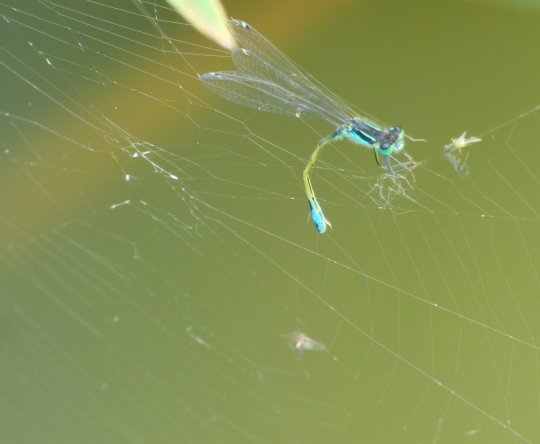
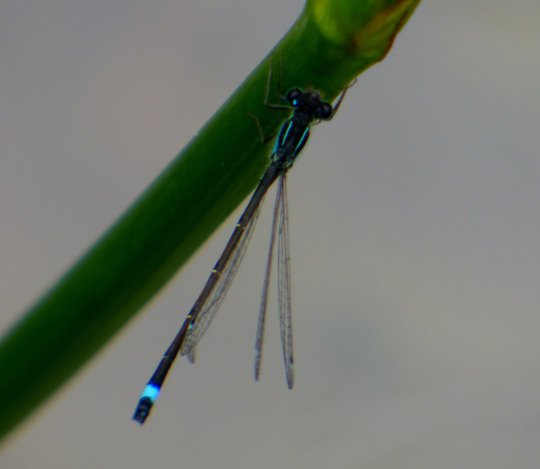
0 notes
Text
On wave-watching
This time last week I was in the beautiful but often (and certainly last week) wild county of Cornwall. I grew up by the sea, and any of you who also did will understand that it remains at the very centre of your being, drawing you back irresistibly whenever possible. So last week, amid the vagaries of the changing and often stormy skies, I took the opportunity to watch the waves, turbulent and unpredictable amid the blustery conditions.
The more I observed, the more intrigued I became. On two occasions, there was a different harbour wall against which the waves were crashing with spectacular spray – which the camera, alas, failed to capture at the most stunning moments! Part of the reason for the photographic failure was the unpredictability of the result from each wave. Some arched high and with such promise, looking as though they would break extravagantly, yet when it came to it, somehow they petered out, disappointingly never fulfilling the earlier potential. What seemed so powerful actually wasn’t. Yet others, looking unassuming, gathered power quietly with astonishing results.
It seems to be that this reflects a deep truth about life. Our own expectations, and messages from the media, government and a myriad of other influences, communicate that power is about status, wealth, celebrity, influence, or military or economic might. At a personal level, we imbibe an untruth: that strength is about capability, wholeness, always coping… we impose upon ourselves (or even others) a feeling that we need to be like that wave, cresting magnificently and visibly.
It is my great privilege at times to walk alongside those for whom life is a struggle: whether from public difficulties such as illness or disability, or the more private (and sometimes isolating) pain emitting from scars from the past which impinge on the present, or the quiet desperation of loss or depression. What I see, often, is the equivalent of those quiet waves: a gentle and unassuming strength which is far more moving for its very meekness.
God, it seems to me, is very much in those moments of unpretentious continuing. The very first blog I wrote (http://marvellouslymade.tumblr.com/post/91039749592/on-blogs-and-brokeness ) and several since, have reflected on brokenness. Recently someone said to me they couldn’t identify with what I write because they don’t sense their own brokenness. Many of us, though, do. And in reality we all are. How reassuring, then, the message of the waves. Real strength may not be obvious. It is expressed in the quiet continuing, the ability to care for or encourage another even whilst struggling with pain, the steadfastly holding on to God no matter what. That power in vulnerability is most potently seen in the cross: Jesus in naked defencelessness looking both to lovingly reach those around him and indeed all humanity – an astonishing demonstration of extravagant grace. From such apparent weakness, the most powerful act of rescue, for both humanity and the universe, was accomplished, beside which even the power of the sea pales into its true proportion.

0 notes
Text
On heron watching
Most Tuesday mornings I try to get at least a couple of hours to retreat. The perpetual risk for those of us who have the great privilege of working for a church (we all of us work for God, just in different places) is that our relationship with God can become a list of tasks: yet we are no different from anyone else – our first calling is always to be a disciple. So time with God which is not related to a “to do” list is key, and for me where possible that means nature and a camera.
So today I headed off for a local park. It was a profoundly frustrating journey – for no accountable reason the traffic was nose to tail and a twenty minute journey took over fifty. Several times I thought about turning back to find another patch of green, but somehow I wanted to persist.
My plan was simple. A long(ish!) walk in the wilder part of the park, away from the busyness – an oasis of quiet.
In the event, I barely got past the entrance. Just inside, and so fleeting I almost overlooked it, on the other side of the small meandering section of the river Wandle, was the elegant presence of a heron. Herons are one of my favourite birds – I identify with it I suspect, having been too tall in my youth for my comfort or self-esteem, and craving a curious blend of seclusion and the yearning for company – just as, intriguingly, herons are either isolated or gathered in a heronry.
And so my heron companion and I watched each other, fascinated, for over an hour. Cars passed hurriedly, buggies were speedily pushed, workers rushed by, distracted. Few noticed him on the opposite bank, preoccupied with the concerns of their day. He remained undisturbed, bathed in dappled sunlight on the ivy-clad bank, watching both the water and me with an intent gaze.
Photographers will understand that it is easy even at such times to miss the moment –to be so concerned with a good capture that you are afraid to lower the camera and simply look lest the wildlife you are observing choose that very moment to do something memorable. Yet the heron, simply watching the water with no apparent purpose, spoke to me. God beckons to us from our ceaseless activity and noisy existence: “Just watch. Look and see the water rippling gently over rounded stones on the river bed. See the sunlight filtering through the budding leaves. Just be with Me and let me love you”.
It was time to go. Cold was seeping through the enveloping scarf and the heron had flown. Yet there was one more surprise I almost overlooked. On the other side of the river, barely visible, nestled among the twigs and leaves was a moorhen nest. At first I saw only the adult and assumed it was incubating eggs, secreted from any marauding predators. But no…as I watched out peeked a baby, then two. I watched as the other adult came with an offering: a simple love gift. Then, as it swum off to find other provisions, the young snuggled under the feathers of the adult as the Spring sunshine gave way to cloud and chill.
Jesus lamented over His loved city of Jerusalem, racked with sobs: “…how often I have longed to gather your children together, as a hen gathers her chicks under her wings, and you were not willing”. I wonder how often similarly He is waiting for me – for each of us – to simply hunker down in His love and mercy when the biting winds of our broken world threaten to overwhelm us. How important not to miss the moment, quietly waiting for us to notice its presence. Maybe even this moment….
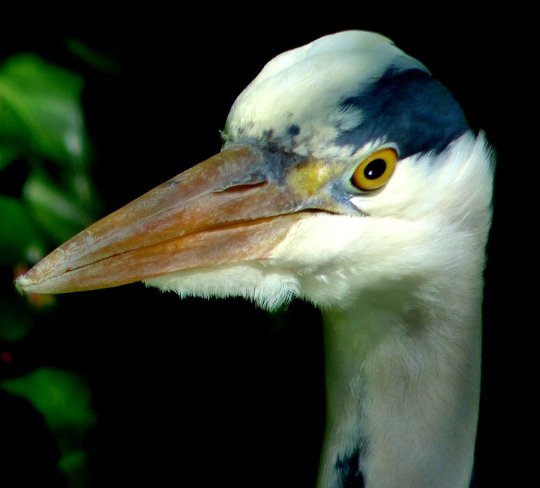
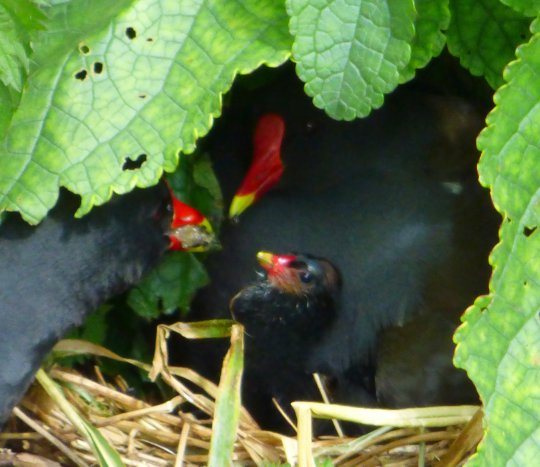
0 notes